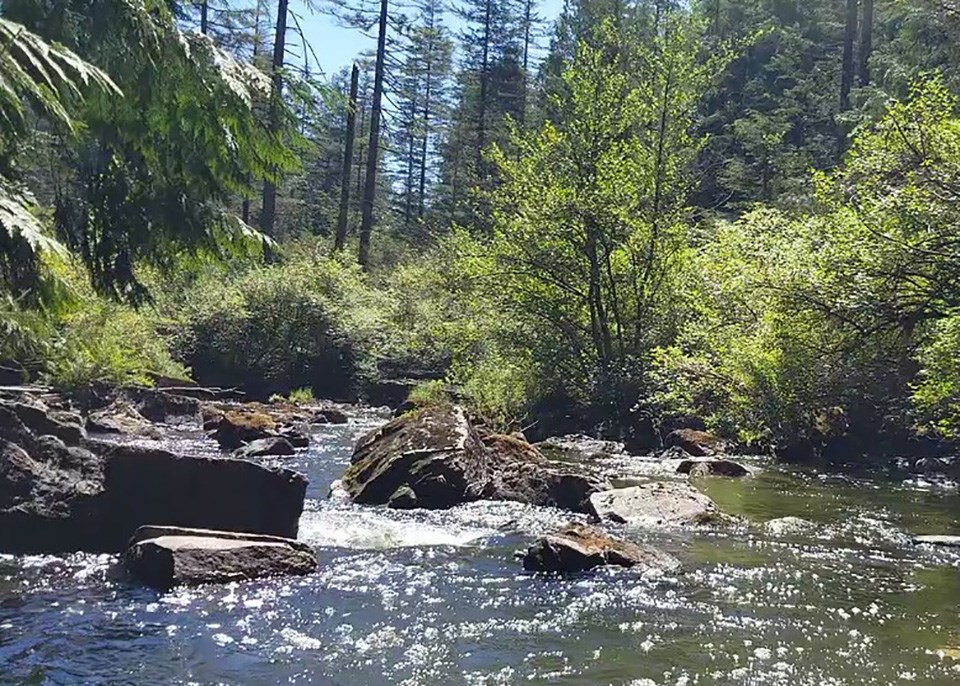A proposal to establish a composting facility in the Duck Lake area will face several conditions.
At the April 5 qathet Regional District (qRD) planning committee meeting, manager of planning services Laura Roddan said the regional district had been receiving a significant number of phone calls and emails from the public concerned about the application.
Roddan put forward a recommendation that the committee recommend to the board that regional district receive the application for an official community plan bylaw text amendment to allow for development of a compost facility on land designated reserve in Electoral Area B, subject to the applicant hosting a public information meeting to present the proposal and respond to concerns raised by the public.
According to a staff report to the planning committee, on February 28, the regional district received an application for an official community plan bylaw amendment to allow for the construction and operation of a fully contained compost facility to process the organic waste stream for the region. The proposed facility is located on property adjacent to Duck Lake Road in Electoral Area B.
The staff report stated that the application was submitted by Green Waste Company on behalf of the property owner, City of Powell River. Green Waste Company was awarded the opportunity to be the service provider for composting under the qRD solid waste management plan through a request for proposal process, the report stated.
Electoral Area B director Mark Gisborne, in whose district the composting facility would be located, recommended a much more expansive motion, including completion of services capacity analysis to determine a viable water servicing approach.
A fire protection plan was stipulated. A third requirement proposed was a traffic impact study. The fourth was that the applicant completes an odour management plan. All four would require the proponent contracting a qualified professional to carry out the studies.
The fifth requirement was that the applicant host a public information meeting to present the proposed application following completion of all the four studies and plans. Gisborne’s motion also suggested that the land designation be changed from reserve to industrial.
After considerable discussion, the preamble to Gisborne’s motion was amended to read that the committee recommends to the board that qRD receive the application for an official community plan amendment for the 0.64-hectare lease area within the described parcel in Electoral Area B, subject to the five conditions, which the planning committee carried.
At the beginning of the meeting, directors heard a delegation from Green Waste Company manager Dan Buckland, who answered a question from Electoral Area D director Sandy McCormick about whether there would be a public meeting. Buckland said his assumption was that such a meeting would be suggested.
There were also questions from Gisborne about fire control and prevention, and odour management. Buckland said there would be an odour management program in place.
Gisborne brought up water consumption and power generation, which, initially, would involve a generator. Buckland indicated that the generator would not emit significant noise.
There was an unregistered delegation from area resident Laural Zilke, who said she had a good understanding of human and animal health, was accumulating knowledge on soil and the environment, and had been an environmentalist from a very young age.
“My concern is that compost is easy to make but it’s not easy to make environmentally safe, or pathogenic-free,” said Zilke. “It requires regulated temperatures, regulated moisture levels and aeration, which is the big factor.
“Even though it is going to be in an enclosed building, there still is going to be leachate.”
She said she did not see any evidence of on-site testing and indicated that the compost needs to be tested to make sure it is pathogen-free, so there needs to be on-site lab technicians or samples going out regularly to a lab.
“I’m not against composting if it is done properly,” said Zilke. She added, however, that several concerns needed to be answered.



